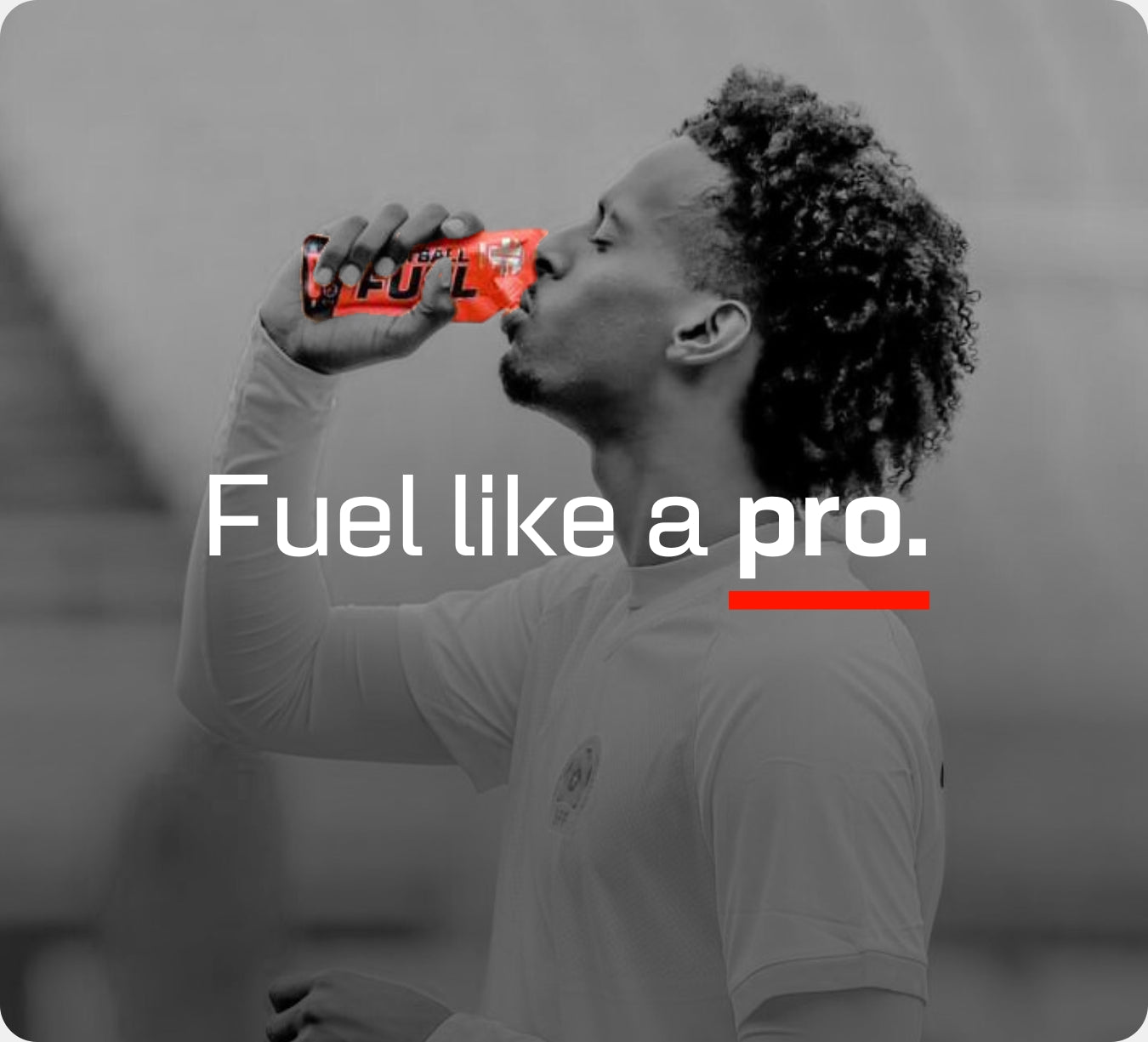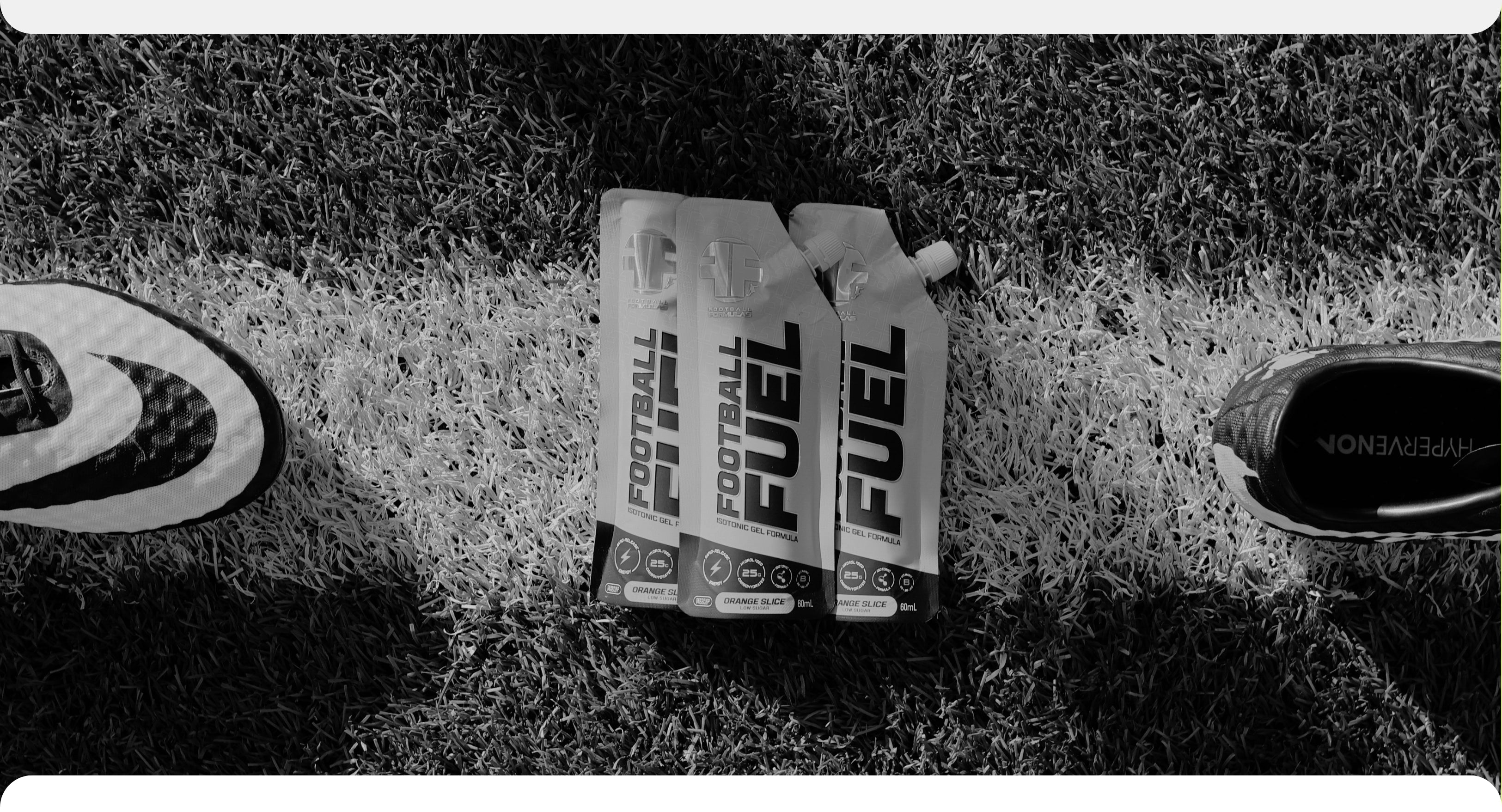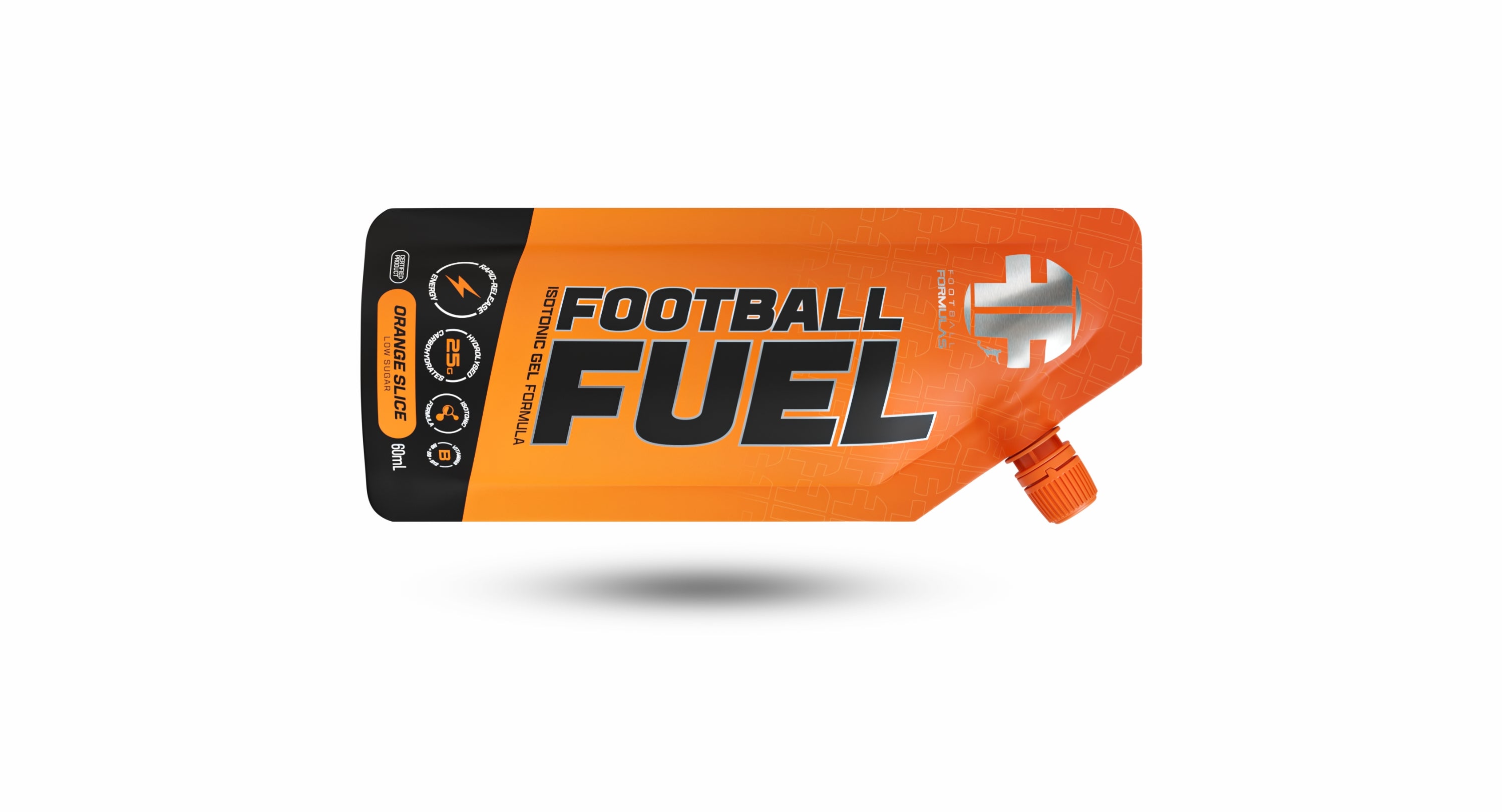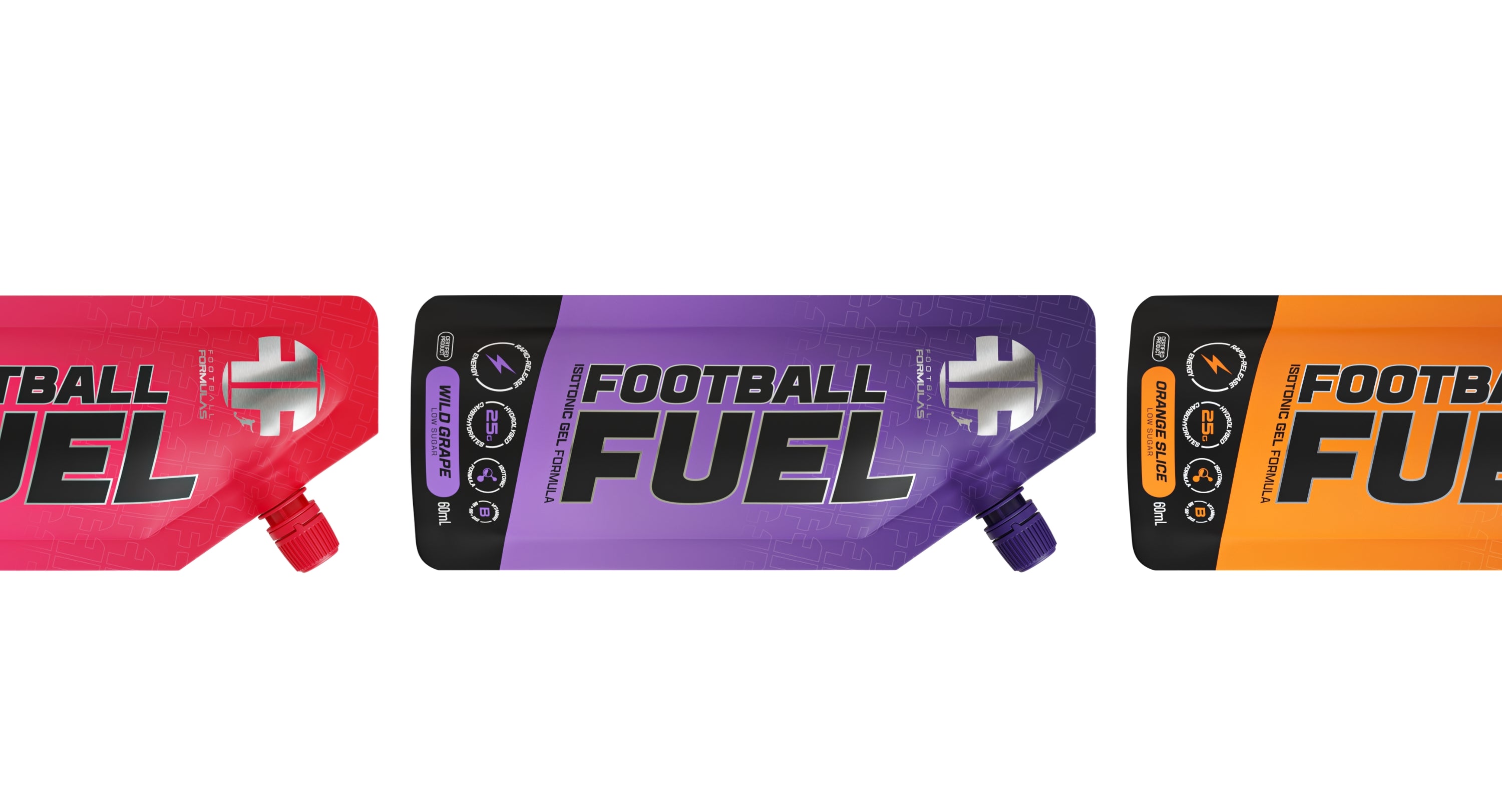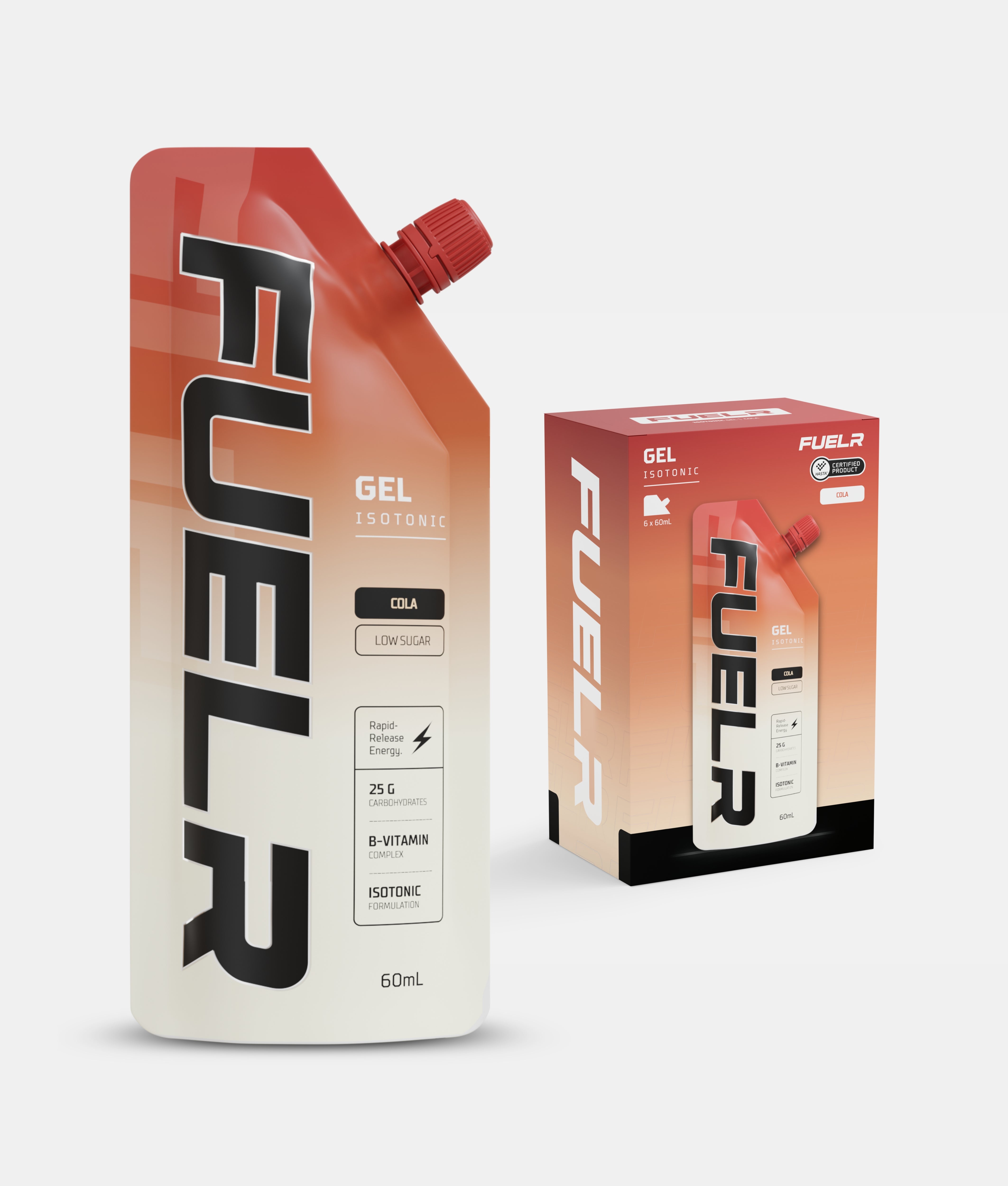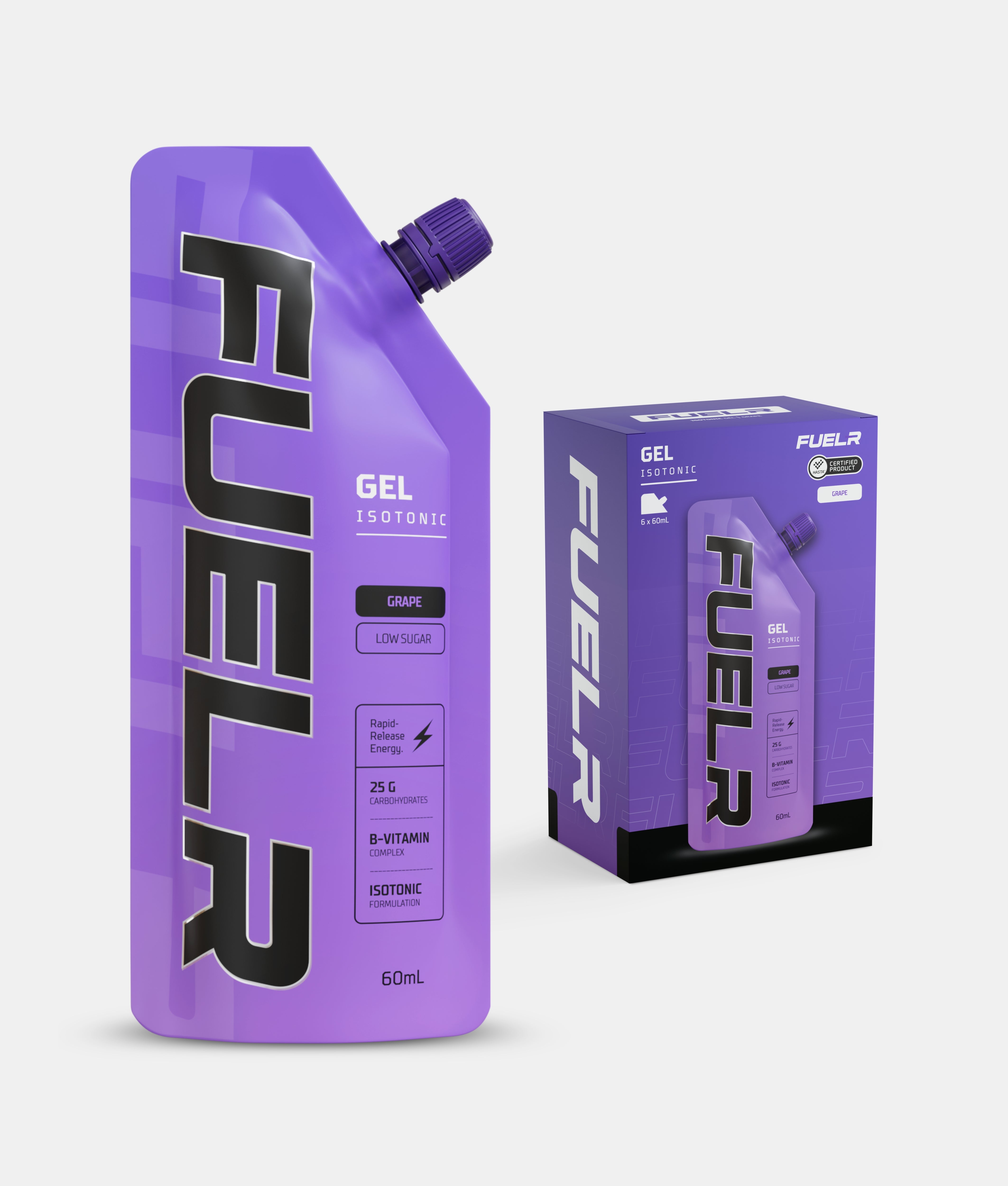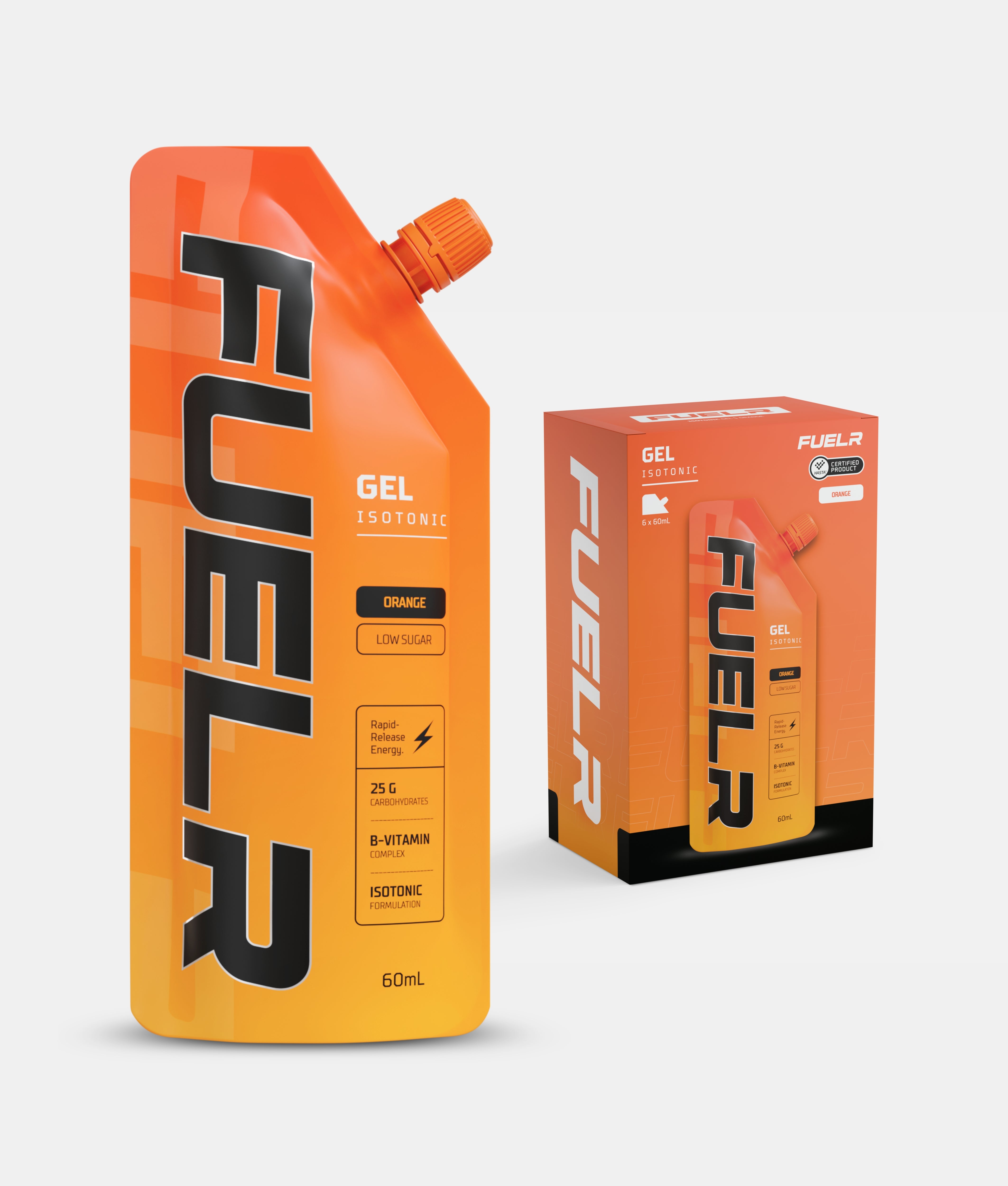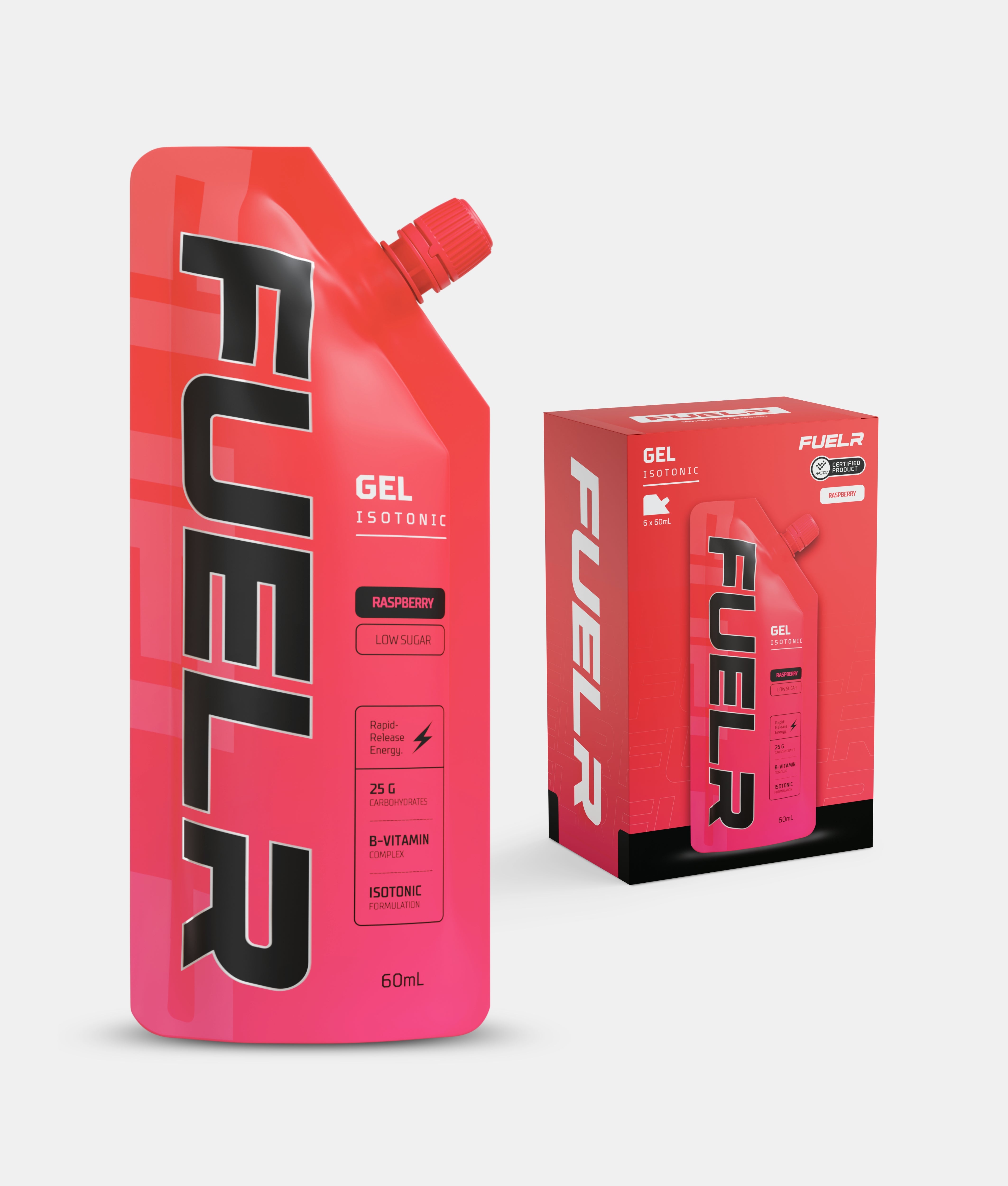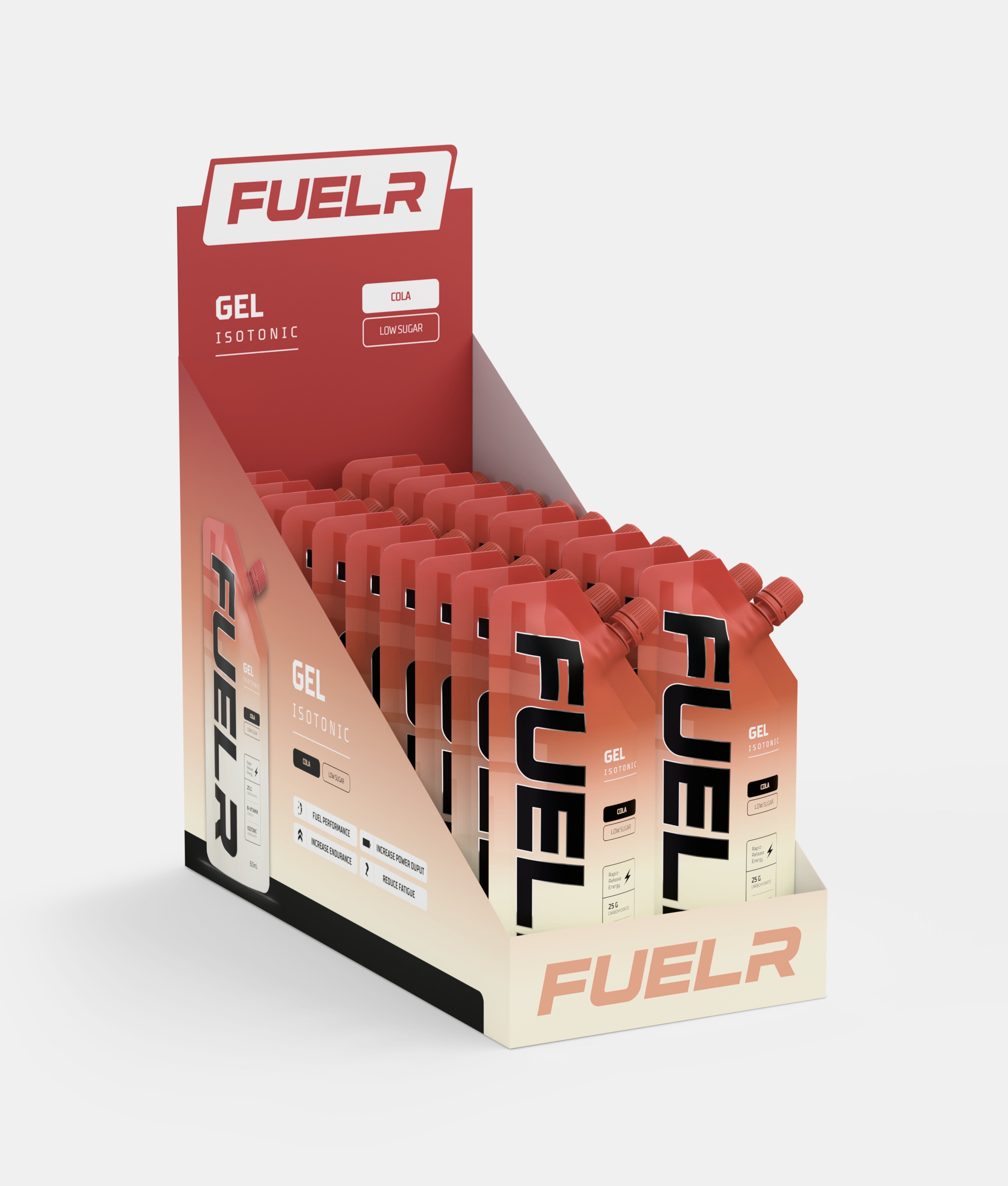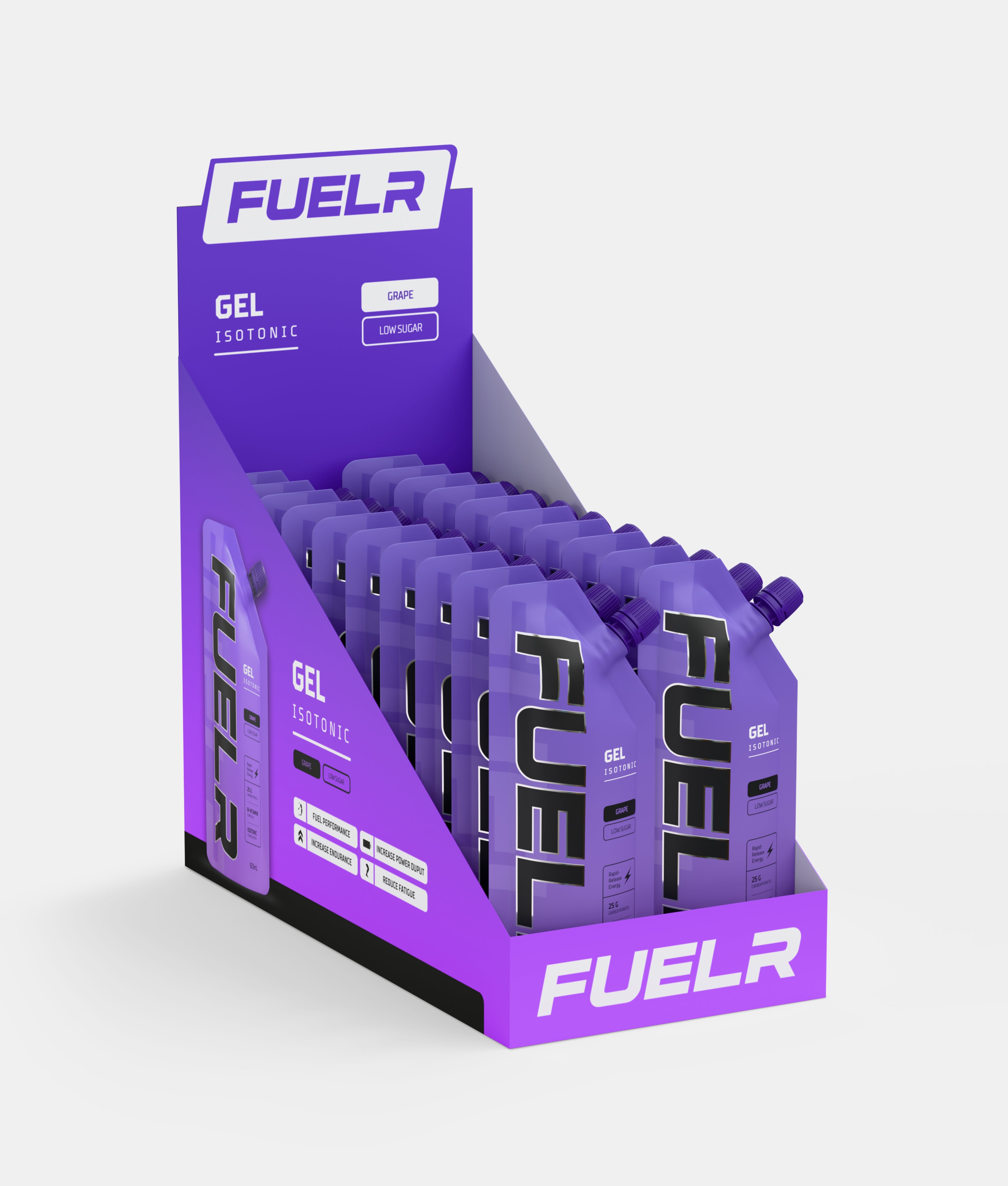HYDROLYSED CARBOHYDRATES
[ 25g ]
The Fuel
Think of your body as a fuel tank, and carbohydrates as the fuel source.
Carbohydrates are the body’s preferred energy source for football, where players perform at high-intesities for 90+ minutes. Once carbohydrates are consumed, they are converted into readily-available glucose to power your box-to-box runs or repeated sprint efforts.
Hydrolysed Carbohydrates: Maltodextrin
In the footballing world, precision is key, and that extends to the specific type of carbohydrates we use in FOOTBALL FUEL.
Hydrolysed maltodextrin, a premium carbohydrate designed to meet the immediate needs of footballers on the pitch.
What Is It?
Maltodextrin is a derivative of maltodextrin that has undergone hydrolysis where these carbohydrate chains are broken down into even smaller components, including glucose molecules.
It's designed for those moments when rapid carbohydrate availability is crucial, such as completing a completing a set of repeat-sprints or lasting the full 90 minutes.
The Difference
Hydrolysed maltodextrin's structure is optimised for speedy digestion. It consists of smaller components, including glucose molecules, which are rapidly absorbed by the body.
While regular maltodextrin is often used for texturizing and bulking properties in various products, hydrolysed maltodextrin is chosen for its rapid energy-release capabilities.
Dosage:
1 FOOTBALL FUEL contains 25g of hydrolysed maltodextrin. An amount to deliver a rapid energy surge for footballers needing to maintain their performance.
ISOTONIC
[ FORMULATION ]
Quick Absorption:
Football Fuel's isotonic gel is designed to empty rapidly from the stomach.
Unlike many traditional energy gels that require fluid intake to dilute the gel, our isotonic formula bypasses this step, providing swift energy.
This means that footballers can receive the energy they need almost immediately, without any delay.
Maintaining Optimal Energy Levels:
The isotonic nature of Football Fuel Gel ensures that the carbohydrates are absorbed rapidly into the bloodstream.
This quick absorption is vital for maintaining optimal muscle glycogen levels during 90+ minutes of intense gameplay.
It helps prevent the depletion of carbohydrate stores, which is a major cause of fatigue among athletes.
Practical and Convenient:
Football Fuel Gel's isotonic formulation is highly practical and convenient for footballers.
It eliminates the need for bulky bottles or extra fluid intake, making it easy to carry during matches and training sessions.
B6 + B9 + B12
[ VITAMINS ]
Enhanced Energy Metabolism:
B-vitamins are key players in the body's energy production processes.
They help convert the carbohydrates from the gel into readily available energy.
This enhanced energy metabolism is essential for footballers, as it provides the stamina needed for demanding training sessions and matches.
The Difference
Most gels focus solely on providing carbohydrates for a quick energy fix, but they miss a crucial element – the micronutrients that make all the difference. Unlike most gels on the market, Football Fuel recognises the importance of B-vitamins in the energy production process.
What does this mean?
By including these micronutrients (B-Vitamins) in our formulation, FOOTBALL FUEL ensures that every bit of carbohydrate is effectively transformed into the energy your muscles demand.
Optimal Oxygen Transport:
Vitamin B6, B9 and B12 all contribute to the formation of hemoglobin, the protein responsible for transporting oxygen in the bloodstream.
This is crucial for endurance on the field, as footballers require efficient oxygen delivery to their muscles to perform at their best.
Improved Cognitive Focus:
B6 and B12 are known for their role in supporting neurotransmitter production.
These neurotransmitters are responsible for maintaining mental clarity and focus, which are essential for making quick decisions on the pitch.
HOW IT WORKS
[ THE JOURNEY OF THE GEL ]
01 - Consume
Once FOOTBALL FUEL is consumed, the body starts the process of breaking down the hydrolysed carbohydrates with the help of the B-Vitamins present in the gel.
02 - Absorb
The digested carbohydrates, in the form of glucose and other simple sugars, are absorbed into the bloodstream through the walls of the small intestine.
This is a relatively rapid process, and it usually starts within minutes after ingestion.
03 - Transport
The glucose-rich blood then circulates throughout the body, delivering the energy to the muscles are the primary target.
04 - Muscle Uptake
The muscles are highly receptive to glucose when they are in need of energy, especially during intense physical activity like football.
Muscle cells have insulin receptors that facilitate the uptake of glucose from the bloodstream.
05 - Energy Production
Once inside the muscle cells, glucose is metabolised to produce adenosine triphosphate (ATP), the primary energy currency of cells.
This ATP fuels muscle contractions and provides the energy needed for sprinting, tackling, and other explosive movements on the pitch.
06 - Fuel Performance
With the energy from the FOOTBALL FUEL now readily available in the muscles, you will experience a boost in power and endurance.
This will result in improved sprint speed, agility, and overall performance during the game.
FUEL LIKE A PRO
[ ISOTONIC GEL FORMULA ]
References
1. Baker LB, Rollo I, Stein KW, Jeukendrup AE. Acute Effects of Carbohydrate Supplementation on Intermittent Sports Performance. Nutrients. 2015 Jul 14;7(7):5733-63. doi: 10.3390/nu7075249. PMID: 26184303; PMCID: PMC4517026.
2. Hills SP, Russell M. Carbohydrates for Soccer: A Focus on Skilled Actions and Half-Time Practices. Nutrients. 2017 Dec 25;10(1):22. doi: 10.3390/nu10010022. PMID: 29295583; PMCID: PMC5793250.
3. Harper LD, Briggs MA, McNamee G, West DJ, Kilduff LP, Stevenson E, Russell M. Physiological and performance effects of carbohydrate gels consumed prior to the extra-time period of prolonged simulated soccer match-play. J Sci Med Sport. 2016 Jun;19(6):509-14. doi: 10.1016/j.jsams.2015.06.009. Epub 2015 Jun 17. PMID: 26115589.
4. Lee MC, Hsu YJ, Shen SY, Ho CS, Huang CC. A functional evaluation of anti-fatigue and exercise performance improvement following vitamin B complex supplementation in healthy humans, a randomized double-blind trial. Int J Med Sci. 2023 Aug 15;20(10):1272-1281. doi: 10.7150/ijms.86738. PMID: 37786445; PMCID: PMC10542023.
5. Lukaski HC. Vitamin and mineral status: effects on physical performance. Nutrition. 2004 Jul-Aug;20(7-8):632-44. doi: 10.1016/j.nut.2004.04.001. PMID: 15212745.
6. Burke LM, Hawley JA, Wong SH, Jeukendrup AE. Carbohydrates for training and competition. J Sports Sci. 2011;29 Suppl 1:S17-27. doi: 10.1080/02640414.2011.585473. Epub 2011 Jun 9. PMID: 21660838.
7. Steffl M, Kinkorova I, Kokstejn J, Petr M. Macronutrient Intake in Soccer Players-A Meta-Analysis. Nutrients. 2019 Jun 9;11(6):1305. doi: 10.3390/nu11061305. PMID: 31181835; PMCID: PMC6627126.
8. Hills SP, Russell M. Carbohydrates for Soccer: A Focus on Skilled Actions and Half-Time Practices. Nutrients. 2017 Dec 25;10(1):22. doi: 10.3390/nu10010022. PMID: 29295583; PMCID: PMC5793250.
9. Bangsbo J, Mohr M, Krustrup P. Physical and metabolic demands of training and match-play in the elite football player. J Sports Sci. 2006 Jul;24(7):665-74. doi: 10.1080/02640410500482529. PMID: 16766496.


